Summer Fun: How to protect your Skin in the Sun
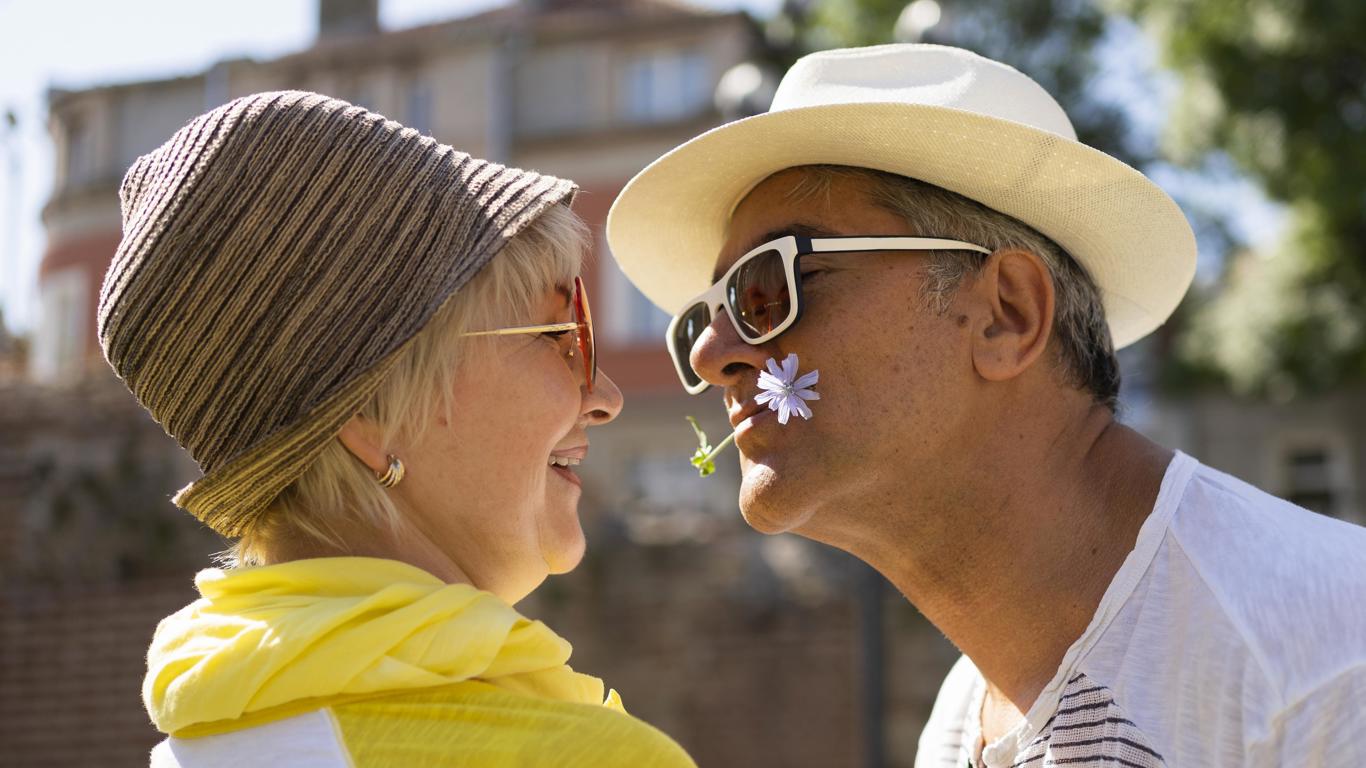
5 Tips to Protect Your Skin in the Sun
Despite our love-hate relationship with the weather, the British summer encourages us to book a holiday or staycation, head to a music festival, or just generally get ourselves outside to enjoy the longer days. We enjoy a few weeks in a heatwave, where we complain about the heat, but soak up as much sunshine as possible before the winter returns (or the inevitable rain).
As we prepare for the Kids’ Summer Holidays, enjoy our getaway vacations abroad or simply relax in our own back gardens, it’s time to look after our skin to avoid looking like a lobster, (or worse) getting heatstroke.
Looking after ourselves in the sun is vital, it prevents short term issues like sunburn and more serious issues in the future. It’s also super simple.
Here are 5 ways to Protect your Skin in the Sun
Sunscreen & After Sun
We always lecture our children on the importance of suncream, but it’s just as vital for us to lotion up against the sun.
Sunburn increases your risk of skin cancer. It’s not something you can only get from sun exposure on holiday or time on the sunbeds, getting a sunburn can happen on a cloudy day in the UK. When the UV is high, the sunscreen should be on!
What are UVA rays?
UVA Rays are present at all times of the day, and while you can’t see the immediate effects, they’re very powerful. UVA Rays can penetrate through clouds and glass, and penetrate the skin deeper than UVB. These rays can cause long-term damage, from skin-cancer to sunspots and leathery skin. UVA Rays contribute to wrinkles and play a major role in our ageing process.
What are UVB rays?
UVB Rays are mostly responsible for sunburning and skin reddening. They don’t penetrate as deeply as UVA Rays, but they can be just as damaging. UVB Rays are cause the development of skin cancers, including melanoma and basal cell carcinoma and squamous cell carcinoma.
What are UVA star ratings?
In the UK, sunscreen and sun protection will include a UVA star rating on the bottle. This rating system consists of 0-5 stars and indicates the percentage of UVA radiation that the sun protection can absorb. The higher the star rating, the better the protection.
What kind of Sunscreen should I use?
When buying sunscreen, it is always important to check the label. Each bottle will have a sun protection factor (SPF) and a star rating out of 5. Choose a bottle that is at least 30SPF with 4 or more stars, or factor 50SPF for the kids.
If your suncream has been stored away over the winter, make sure the bottle is still in date. Reapply the suncream throughout the day.
Apply sunscreen to any areas that aren’t protected by clothing, including the face, ears, feet and the backs of your hands. And remember to let it soak in if you’re planning to jump into a pool of water.
After-sun is a brilliant way to rehydrate your skin after it’s been exposed to the sun, helping to alleviate any discomfort and prevent peeling.
Did you know?
It’s still possible to get a tan whilst wearing suncream. It will likely take a little longer and be less intense as the sunscreen is designed to block and absorb a significant portion of UV rays (but doesn’t block them entirely).
Enjoy your sunbathing whilst protecting your skin!
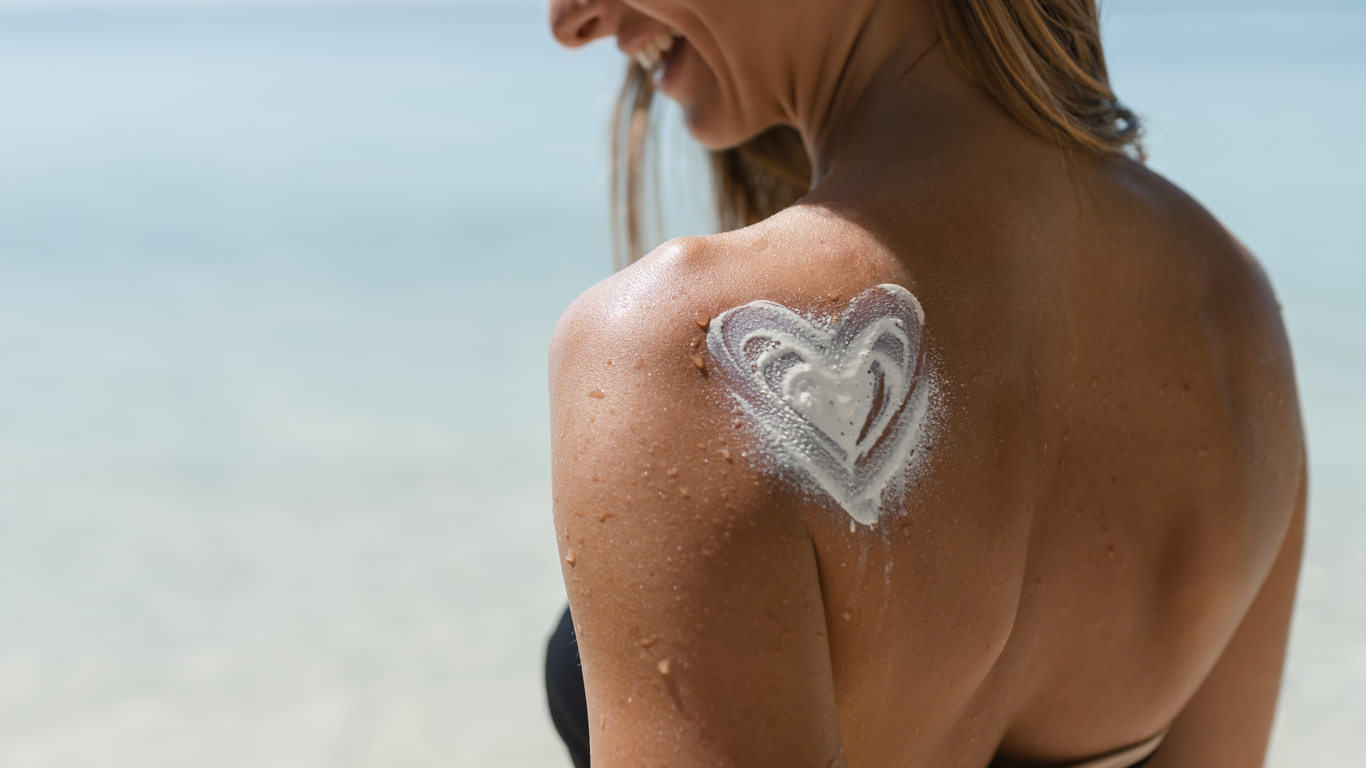
Sun Protective Clothing & Wearing Sunglasses
When you’re out and about, wearing clothes that provide sun protection is not only a simple way to protect your skin, but can also keep you cool from the heat.
Choose items such as wide-brimmed hats that can shade the face, neck and ears, long skirts or trousers that don’t allow sunlight through and long-sleeved tops that aren’t too thick or too thin.
To stay cool in the sun, wear lighter shades of colour, including white and grey. For sun protection, darker colours like black, navy or burgundy are better at absorbing UV rays, preventing them from reaching your skin.
Wearing Sunglasses to protect your eyes from the sun prevents short term issues, like discomfort, and long-term issues, including damage to the eyes. To know if a pair of sunglasses have UV Protection, look for a label indicating UV400 or 100% UV Protection.
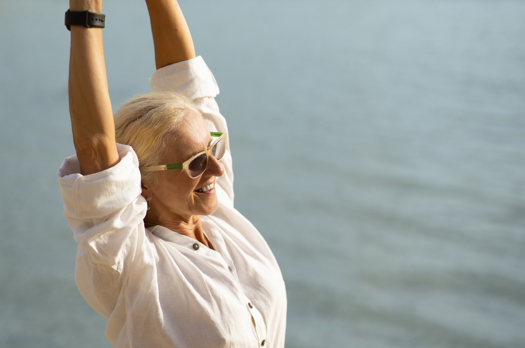
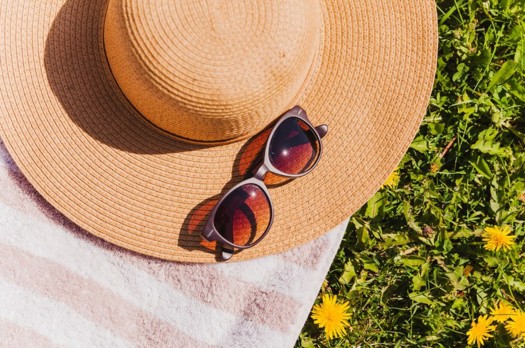
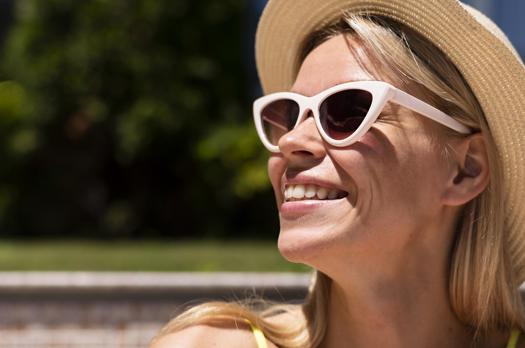
Check your Skin
According to the British Skin Foundation, around 60% of people in the UK currently have a skin condition or have previously had a skin condition, these range from skin cancer to eczema.
Routinely check your skin for anything unusual. Keep an eye on moles for any change in shape or colour, look for discolouration that doesn’t match your skin tone, get any repeat itchiness checked out and map out an understanding of your body.
How do I keep my skin healthy?
- Apply sunscreen daily (even in the winter)
- Moisturise daily to hydrate your skin and avoid dryness or irritation
- Avoid really hot showers and baths to protect your skin’s natural oils
- Exfoliate to remove dead skin and debris
- Add Vitamin C to your skin care routine to provide an antioxidant, and aid in the synthesis of collagen

Stay in the Shade
Having frequent breaks from the sun is healthy for your body and skin. Not only are you giving your skin a rest from the UV rays and stopping your skin from drying out, but you’re also giving your skin a chance to heal and repair itself.
By getting yourself into a shaded spot, you’re letting your hair have a break too. The sun can damage your hair in a number of ways, including drying it out and making it brittle, fading the colour as the sun is a natural bleacher, and the potential of a sunburnt scalp, which can be incredibly sore and can lead to irritation.
Even if you’re wearing your sunglasses, a little sit down in the shade will stop your eyes from drying out and weakening from the light.
And, whilst you’re enjoying the shade, you’re allowing your body’s temperature to naturally cool down which will prevent heat stroke or exhaustion. Avoid the headache and sit yourself away from the sun for a couple of hours and let your body have a breather from the UV rays.
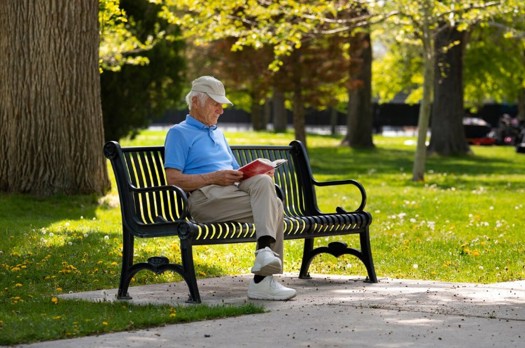

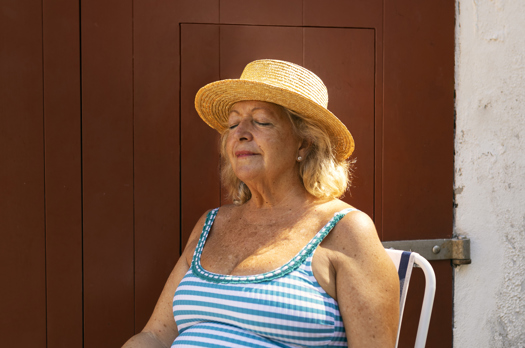
Stay Hydrated
Staying hydrated helps to regulate your body’s temperature, transport nutrients and will prevent minor discomforts, like headaches, or more severe conditions, such as heat exhaustion and heatstroke.
How can I stay hydrated?
Drink plenty of Water
It’s the simplest way to stay hydrated. The NHS suggests drinking between 6-8 glasses of water or fluid a day, this also includes lower-fat milk, sugar-free drinks (like tea and coffee), or cordial juices.
You can also take Electrolyte tablets to help your body hydrate.
Avoid Excessive Caffeine and Alcohol Intake
Caffeine and alcohol can lead to increased toilet breaks, which can contribute to dehydration. Caffeine also increases the excretion of salt and water by the kidneys, whereas Alcohol inhibits the release of vasopressin, a hormone that causes the body to retain water.
Eat Water-Rich Foods
A lot of our national favourite fruits and veggies are in season, are rich in nutrients and can help us stay hydrated. Foods like Strawberries, Watermelon, Cucumbers and Oranges are all perfect options.
Set Hydration Reminders
Set reminders on your phone or set an alarm to remind yourself to enjoy a fresh glass of water whilst you enjoy the sun. This can be once an hour, or every few hours depending on how hot the weather is.
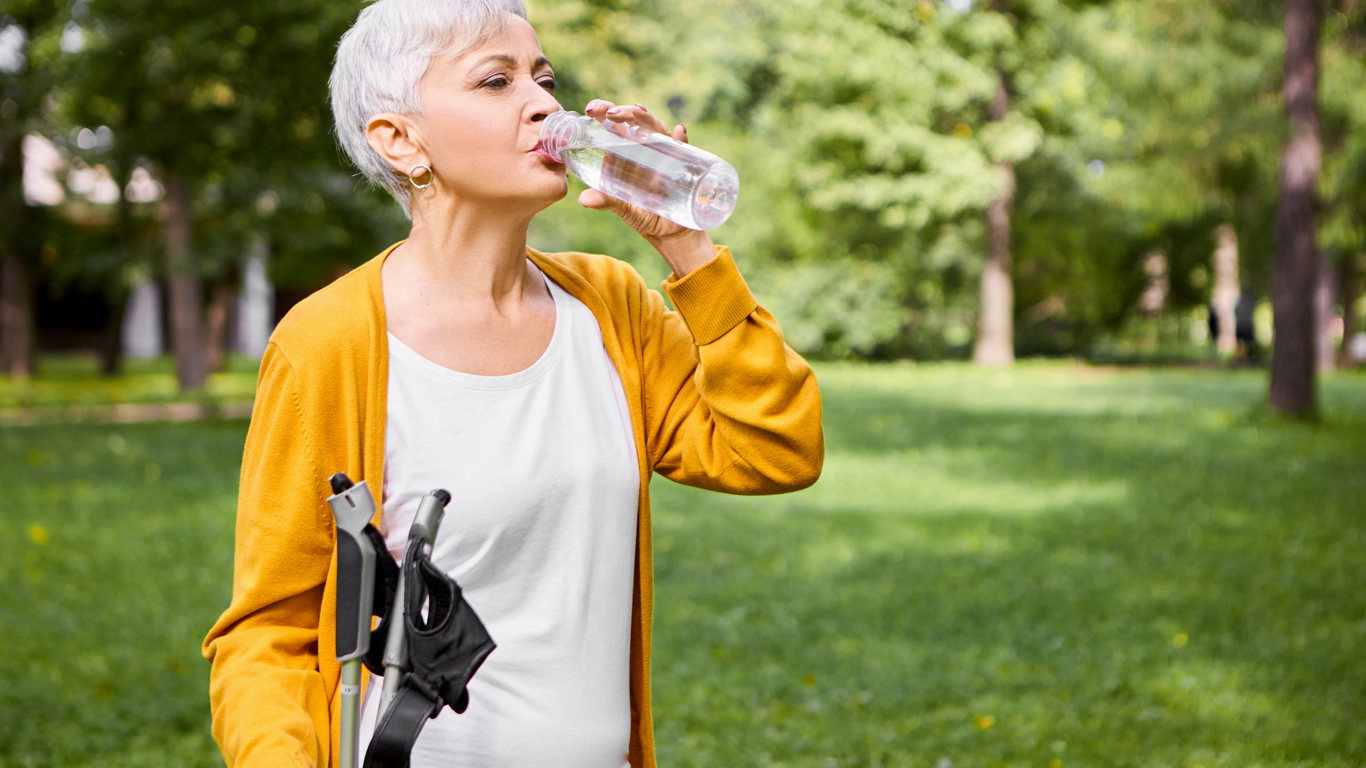
We hope these tips and tricks have helped you understand why and how to protect your skin in the sun. Enjoy the sunny weather, make plans with your family and look after your health.
Whilst Britain has the sun, get your garden Summer ready with our Gardening Tips, enjoy the Wimbledon celebrations with a garden party and find our top tips for sleeping in hot weather.
Sign up for our newsletter
Sign up for our newsletter to hear about our exciting new collections, interior trends, wellbeing advice as well as exclusive offers.



